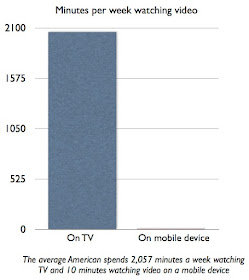Our next "Best of 2012" is from October. It was about marketing professors and the Pepsi Refresh project.
There was a piece in Ad Age last week featuring the astoundingly clueless opinions of marketing and business professors on the subject of the Pepsi Refresh project.
The amazing thing is that these people weren't from Southwest Arkansas State. These guys were from Harvard, Columbia, Dartmouth, Penn and Notre Dame.
It makes it clear why so many young people in advertising are confused about what they're supposed to be doing. And just how out of touch these experts are.
Before we take a look at their opinions, let's review the facts:
- In 2010, Pepsi diverted scores of millions of dollars from traditional advertising (including their Super Bowl sponsorship and their traditional TV advertising) into a massive social media project.
- After one year of this, they had lost 5% of their business.
- Their sales dropped by an estimated half a billion dollars.
- They fell from their traditional 2nd place in the soft drink category to 3rd place.
- Their sales erosion increased widely compared to the previous year
- Their beverage ceo was so upset he said he was going to "blow up the place."
- To this day, they are still suffering from this debacle
- Many of the key players are now gone from Pepsi
- After burning astronomical amounts of money on this, Pepsi finally killed it in March.
"...we don't know whether it was effective or not."What?! We DON'T KNOW??? Maybe you need a few research assistants to do a thesis for you, then you'll know. What has to happen to convince you that it bombed? Do lab rats have to grow two heads?
"I have read that the project had over 60 million folks involved. That is a pretty impressive accomplishment."No, the "pretty impressive" part was how they got hundreds of millions of people to buy 5% less Pepsi. Now that's impressive.
"...it has helped further the conversation about the role of purpose in brand marketing."Oh, the f/ing conversation! That old thing still alive on campus? Here on planet Earth, professor, we buried that putrid monkey about 2 years ago. How about this -- the "role of purpose" is to sell shit. Any further questions?
"It shows the power of making a big commitment to these causes. People really responded and said Pepsi is a good company."Yeah, everywhere I go people can't stop talking about what a good company Pepsi is. I can hardly get a conversation going about the election or football.
"It's something that will be more and more relevant and more mainstream."Bullshit.
First of all, no company will ever again be stupid enough to listen to the delusional blather of "social media marketing experts" and do what Pepsi did.
Second, the "mainstream" doesn't need lessons from corporate America in good citizenship. We don't need lectures from white collar windbags who hide every dollar of profit they can from the tax system. We don't need holier-than-thou pronouncements from sugar-water peddlers about their high-minded principles. We don't need exhortations from overfed sharpies about our responsibilities as citizens.
You want to sell us stuff? Fine. Tell us what you got and why we need it.
Otherwise, we can do very well without your cynical gimmicks and corporate chest-pounding disguised as social virtue.






